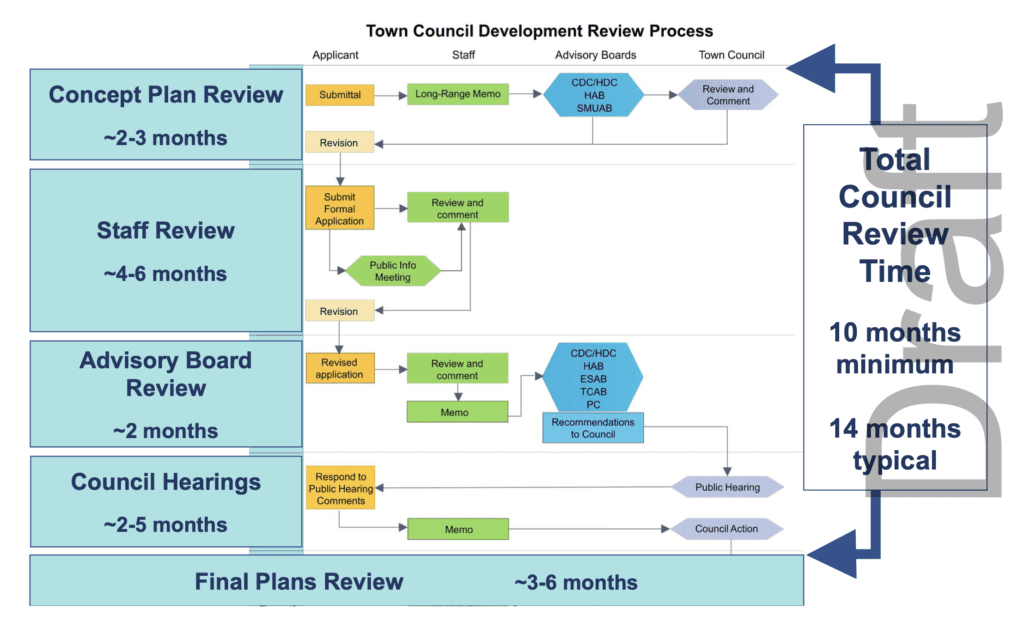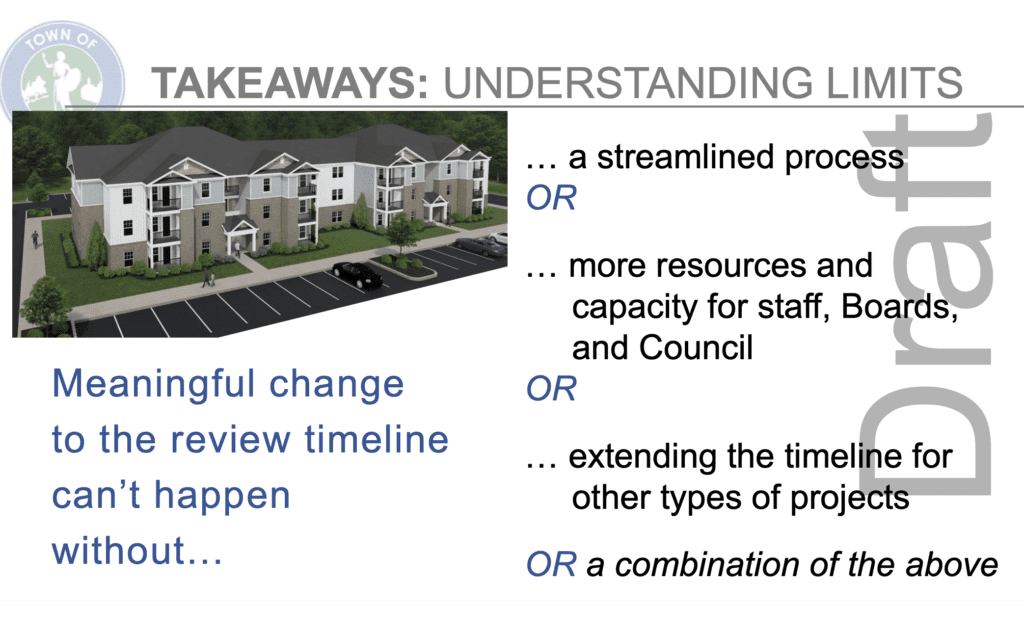Last Fall, four members of Chapel Hill Town Council—Karen Stegman, Tai Huynh, Allen Buansi, and Michael Parker–submitted a petition to the town council asking staff to look into strategies for expediting the review of affordable housing projects in town. This spring, two affordable housing projects—Jay Street and Trinity Court—with 100 homes between them were approved by the town council after undergoing an expedited review. While the petition asked the town to review the project in less than nine months, the Housing Advisory Board pushed for reviewing the project in six months. By combining a few meetings, the town was able to approve both projects in five months.
On Wednesday, May 11, the Town Council met in a work session to hear a report on the lessons learned from the review process. Because affordable housing developments currently go through the same process as every other development in town, the staff took the opportunity to remind the Town Council about the complex and time-consuming process that developers currently use. Here are three takeaways from the presentation.

- The development process is too long, and we all pay the price.
If everything goes well, the current development process takes around a year from start to finish. As close watchers of Chapel Hill politics know, it’s rare for a project to sail through the process, which means that many projects take much longer than a year. As Stephen Whitlow recently noted, the costs of the development process are substantial, and are paid for by scrimping on design and building materials and charging more in rents.
2. Developers care more about certainty than time.
While developers don’t like how long it takes to get projects approved in Chapel Hill, town staff found that they are even more frustrated by the lack of certainty in the process. What does our town really value? Affordable housing? Architecture? The environment? Transportation? We say we value all of them, but it’s impossible to build a project that makes everyone happy.
By allowing so many advisory boards—many of which by design have different priorities— to provide input, developers end up becoming confused about who is in really in charge of the process. Developers will make changes to a project after input from the advisory boards, but when they get to Council they’ll learn that the advisory board members and the Council disagree, and only the Council’s vote matters. This creates acrimony everywhere. Citizens feel like they’re not being heard and town council members feel blindsided when developers express their frustration. A longer and more complex process doesn’t necessarily give us the best results.

3. To fix the process, we need to make many changes, but some Council members like the process as it is.
Town staff suggested that any meaningful reform would require us to either make the process more streamlined—asking for less detailed applications in the early stages, or eliminating certain steps, like the concept plan review—or putting even more resources into supporting the current process. The first would eliminate certain kinds of participation, but potentially allow for others—like community surveys (which Karen Stegman suggested). The second would cost even more money, and it’s uncertain how we would pay for it. If the town only wanted to prioritize affordable housing projects, they’d have to take away resources from elsewhere, making it even more difficult to build in town.
After hearing this presentation, several council members suggested that the current process is better than those in other places, like Raleigh, which have expedited review of development through zoning reform and other changes. Council member Adam Searing expressed concern that some community members will experience “heartburn” if we review projects more quickly. In response, Council member Camille Berry observed that the Council “needs to have the courage to say we want,” even if that means making decisions that some disagree with.